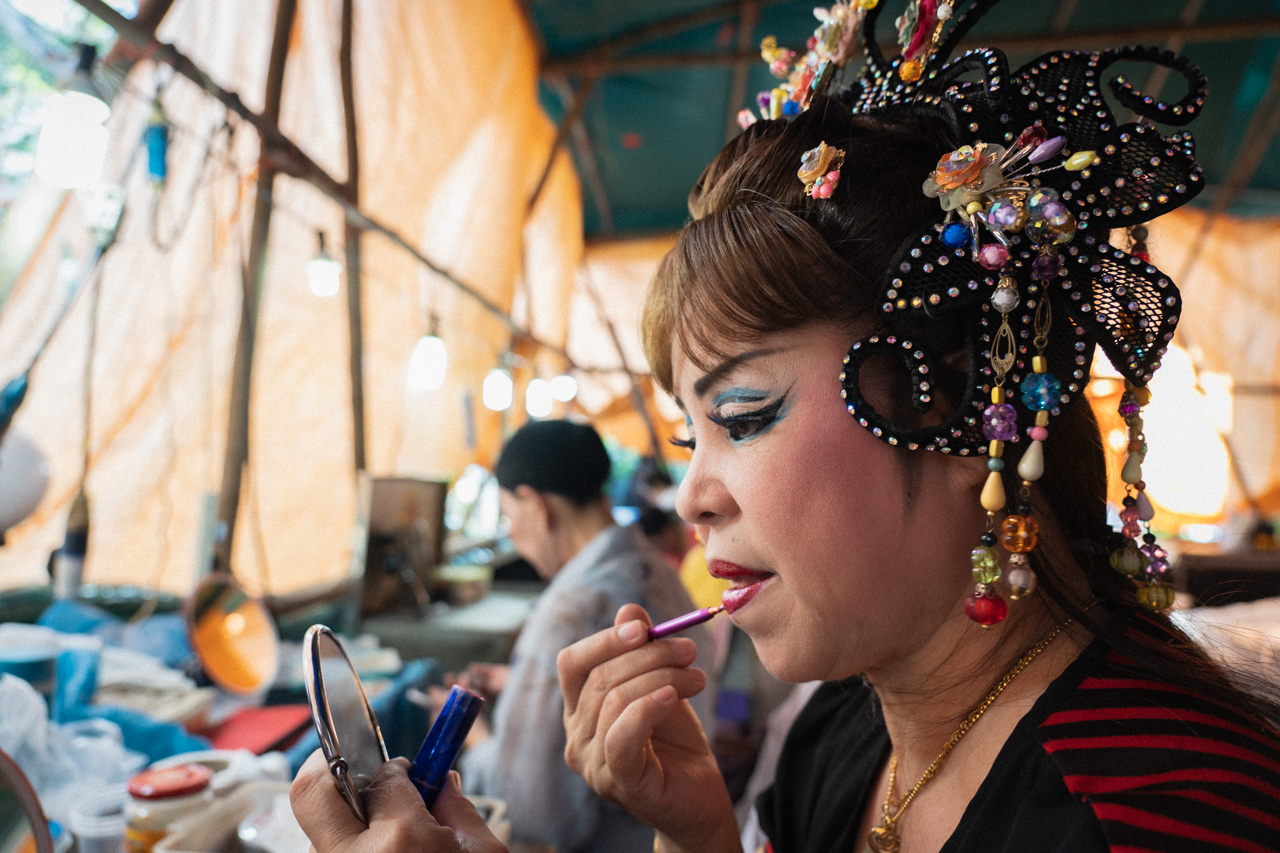All photos by by Zachary Tang. William Hoo assisted with translation.
She’s picked up on how my photographer and I are practically feral with discomfort. For the last ten minutes, we have found ourselves in a profoundly awkward situation: standing in an otherwise empty courtyard, the only two people watching a full-scale Hokkien opera performance.
When we arrive at 3:00 PM on a Friday afternoon, the Sheng Hong temple is almost completely deserted. The few worshippers present have retreated inside the building, save for an old woman who scratches her nose and looks away when she catches my gaze. The air is filled with the distinctive smell of joss sticks, which cover my hair, backpack, and phone screen in a film of ash as they burn down.
At the back of the courtyard, twenty metres away from the stage, red plastic chairs remain stacked in their towers, rather than being laid out in rows. To me, this only seems to emphasise the emptiness of the place, but the performers seem unfazed. Despite the blistering heat, they soldier on in full costume and make-up, their voices echoing across the compound and down the street.
“It doesn’t matter that no one’s watching,” continues Miss Lee. “They’re performing for the gods.”
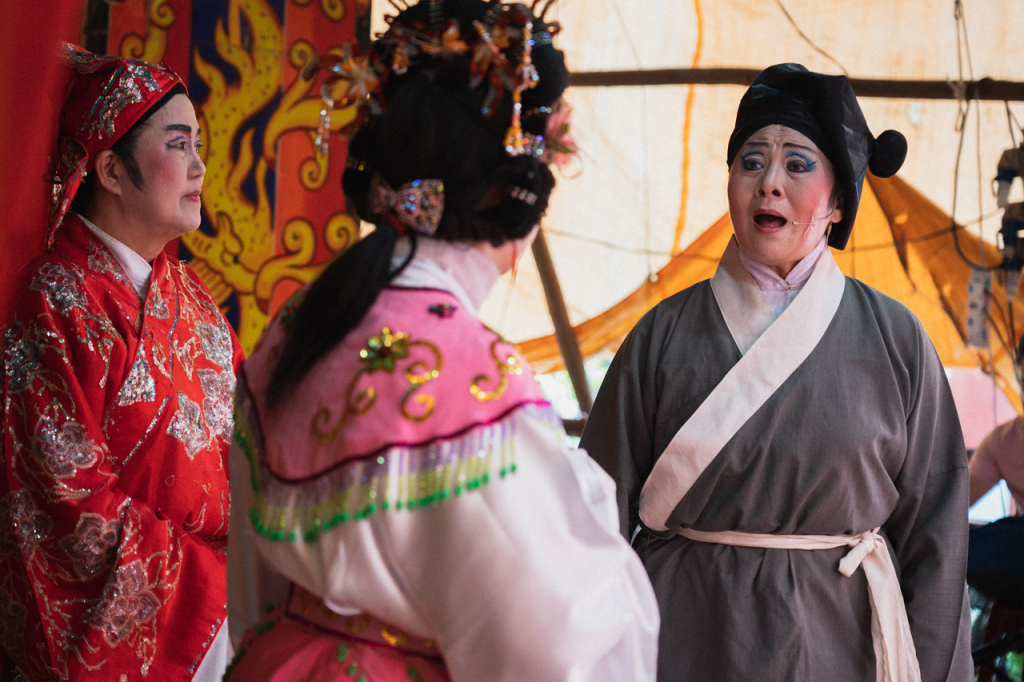
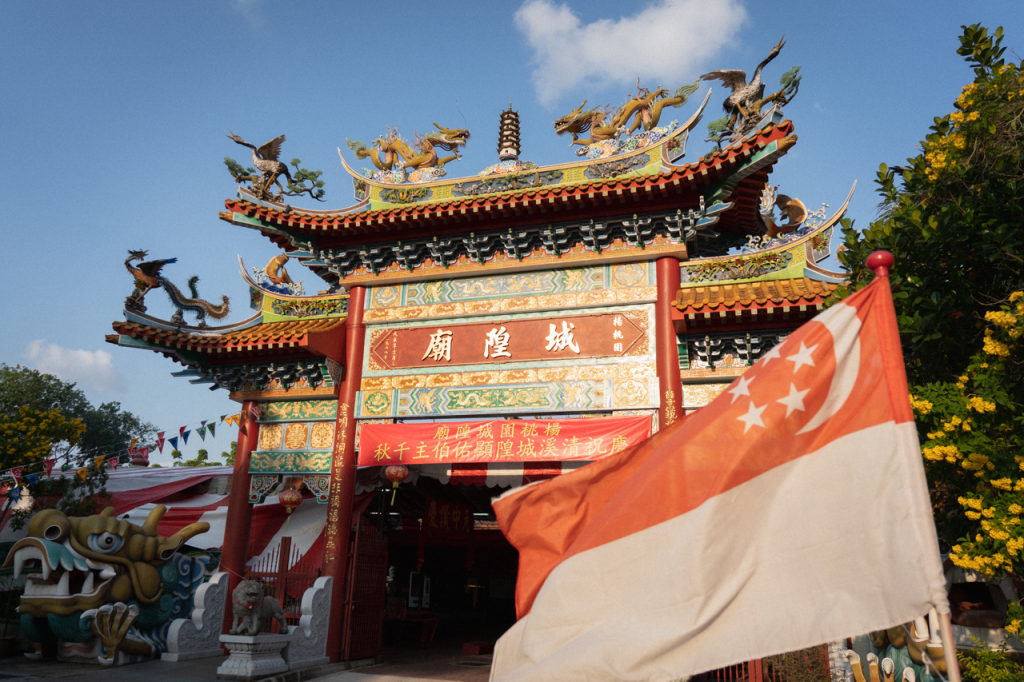
Miss Lee’s troupe, Xiao Dong Tian, has just over 10 people. The members, most of whom are over 50, do their own hair and make-up, iron their own costumes, brush up their skills by watching videos of Taiwanese performers, and pay for their accessories out of their own pockets.
“We haven’t had any new members for a while,” she tells us. “No one is interested in picking up Hokkien opera now.”
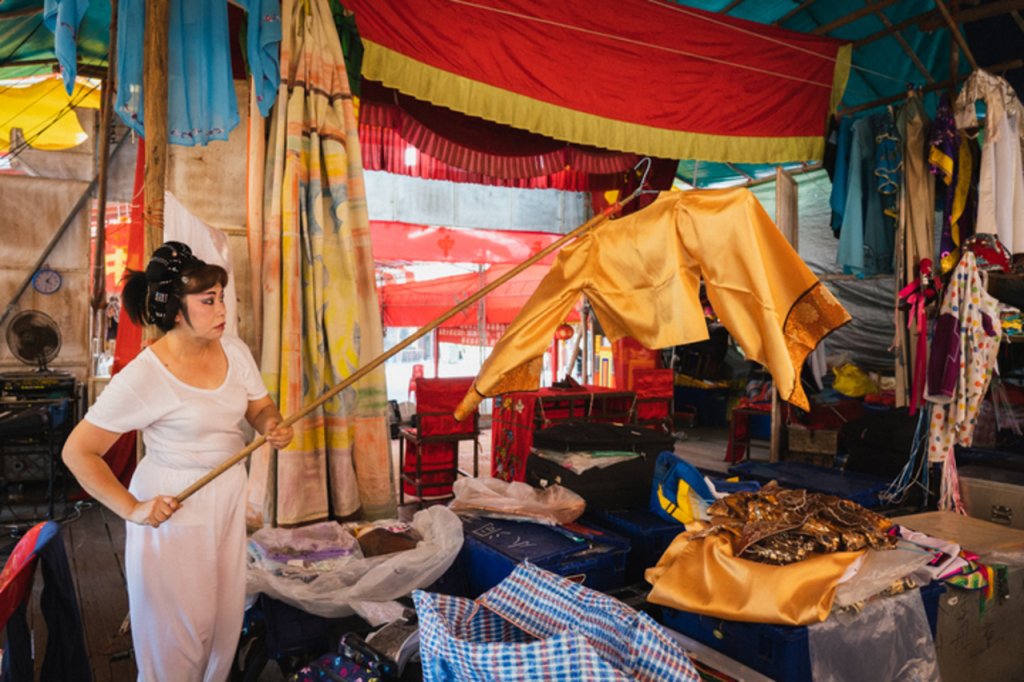
“I wasn’t very studious, and my parents couldn’t really help me with my homework. So we’d just go watch shows from 8 to 12 every night, after I was done with my schoolwork.”
Unlike performers in the industry’s heyday, many of whom began full-time operatic training under professional teachers from mainland China (a process known by the delightfully evocative name of ‘da pi gu’, or ‘being spanked on the bottom’), Miss Lee had no such grooming. She didn’t even have a teacher; the industry was already in decline by the time she joined, and troupes lacked the funds to hire instructors.
Instead, she picked up her craft with the resourcefulness of the self-taught, cobbling together tips from senior performers, copying their gestures, and studying tapes of the famous Taiwanese operatic performer, Yang Li Hua. After her marriage, she spent some years away from the stage to raise her family, but returned to performing when her children grew up.
“I have an affinity for the theatre,” she explains. “It hasn’t ended yet.”
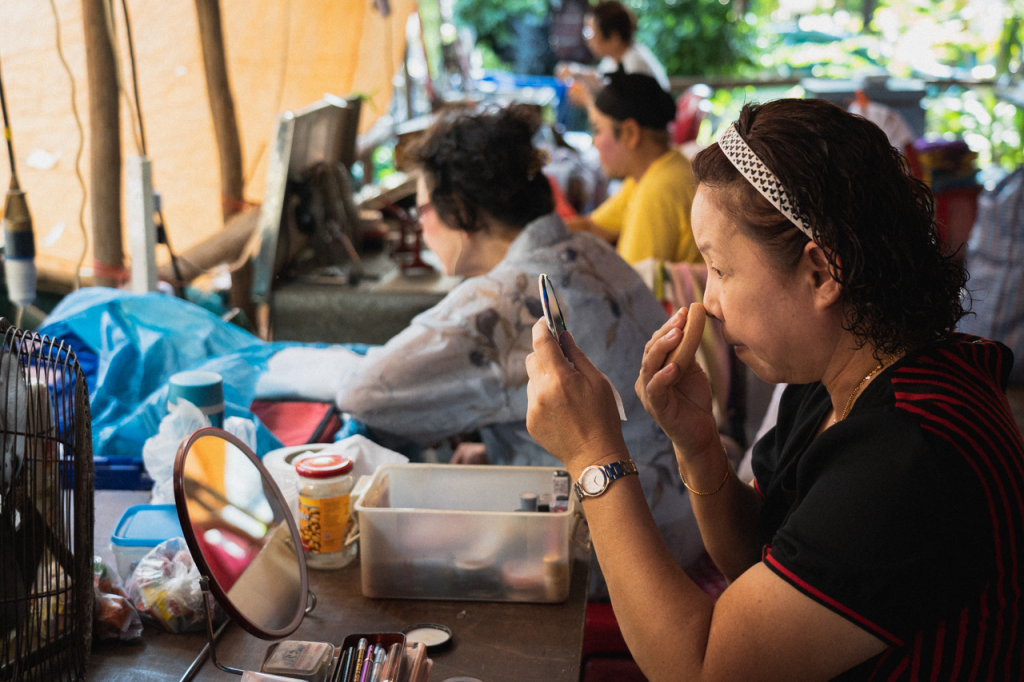
The troupe then meets their director to prepare for the day’s performances. She explains that while opera troupes used to work from set scripts, most troupes nowadays, including hers, do a mix of improvisation and prepared songs.
Depending on who’s performing on a particular day, the director will specify a scenario and assign roles (“For example, you’re the father, you’re the child, you’re going to his house to celebrate his birthday.”) The performers then discuss the flow of the performance and do a ‘table read’ of sorts, either improvising the dialogue or performing songs from memory, based on pieces they’ve heard or learnt before.
Miss Lee looks bemused when asked what she draws inspiration from. “No inspiration la. If my director tells me I’m playing this role tonight then I just do lor. Maybe I’ll think about a role when I’m getting ready or running errands.”
“Mostly I just make it up. As long as the director doesn’t ask us to do something we’re not familiar with, it’ll be OK.”
Although some female performers cross-dress to play male roles, she mostly plays female roles, save for characters who are more ‘flirtatious’ or seductive. “Those are hard!” she says. “I don’t know how to bring [those qualities] out.”
On days when she performs twice, she takes a break after the afternoon show, then gets ready to go back on stage. When the night show wraps, she heads out for dinner with her colleagues, and goes home. Another day, another show down.
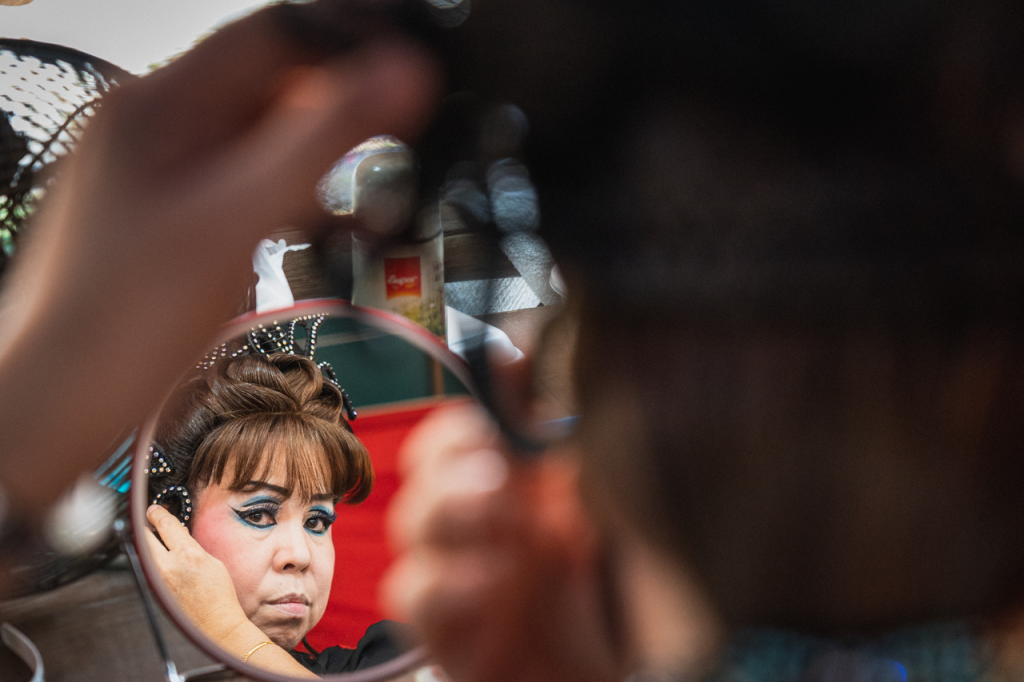
Although she has some ‘regulars’ who have become friends, and whom she meets up with outside of performances, audiences are mainly made up of older people, and even they don’t go out as much as they used to. She suspects the few young people who attend are only there to accompany their elderly relatives.
“Even my kids. They used to come with me when they were little, but not any more. They have their own lives.”
Similarly, the average age of the Xiao Dong Tian troupe members is over 50. Miss Lee explains that their youngest member, a 30-year-old man who began performing in his late teens, is an outlier—but even he has a day job.
“How can a youngster support themselves on so little a day?” she laments. (Troupe members earn about $50 per show, and don’t perform every day.) “The cost of living here is so high, and you don’t get CPF from this job.”
To her, Hokkien opera is in its final stages of decline. Given the intractable issue of language—many young Singaporeans can’t speak dialect (this writer included), and no one will watch a performance they can’t understand—she doesn’t see how this can be reversed.
For her, though, opera is something between a life calling and a daily routine; she can’t see herself doing anything else. (She looks vaguely affronted when we ask if she thinks of it as a retirement hobby.) Performing is the only job she has ever had, and she will keep doing it until Hokkien opera no longer exists here or she doesn’t. Whichever comes first.
How will she feel if this really comes to pass? What if the day comes when Xiao Dong Tian has to close, like so many others before it?
She looks faintly annoyed, like we’ve just asked her the obvious.
“I’ll just find another troupe,” she says.
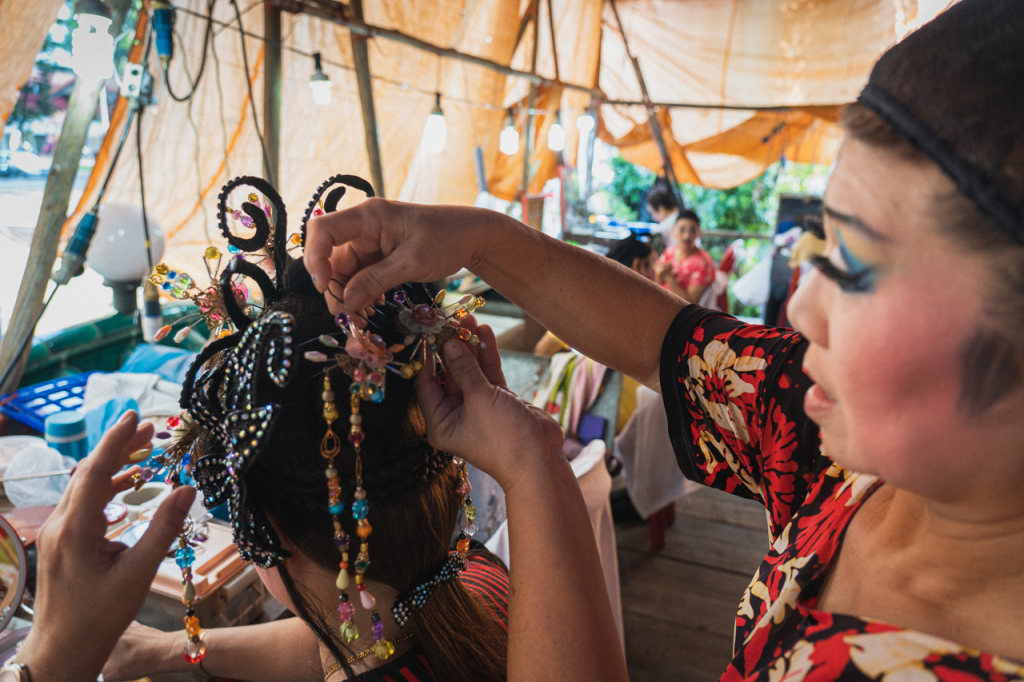
Some interviewees resist questions out of reticence or shyness, others because they genuinely don’t believe the issue is worth introspecting over. Miss Lee is one of the latter.
Does she have a favourite role or song to perform? No, not really.
What does she enjoy most about being on stage? She doesn’t really have very strong emotions when on stage. She doesn’t think about much, just that she has to perform.
Do her fellow troupe members feel similarly about the future of the industry? She doesn’t know. They haven’t discussed retiring.
The brevity of her answers doesn’t escape her notice either. In fact, it makes her visibly self-conscious. Throughout the interview, she makes numerous attempts to downplay her story, insisting that she’s nothing spectacular, that we should probably have interviewed her boss instead.
“My story is nothing special,” she says. “My parents didn’t work in the industry. It’s not like they were opera singers. I don’t have an innate talent for this, unlike people who were raised in this world.”
Perhaps not. She’s not wrong; she’s not the most compelling person Rice has ever profiled. But the fact that her story isn’t especially interesting or memorable—that it isn’t special or conventionally successful—doesn’t mean it’s not worthy of being told.
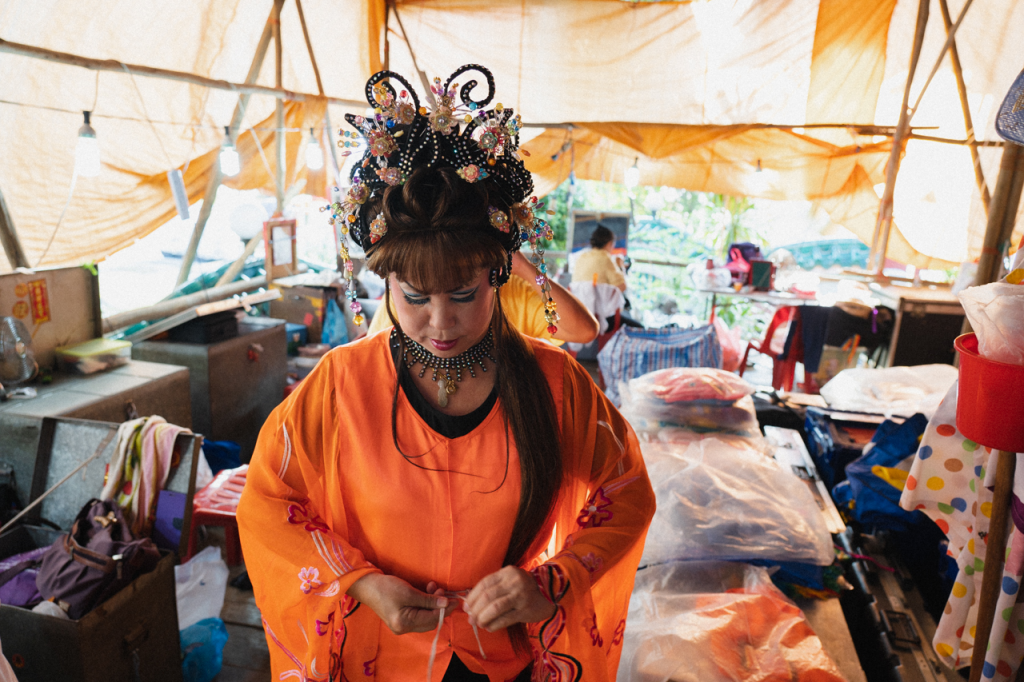
As Singaporeans, we are particularly prone to directing our stories by their endings, working backwards through life based on the goals we want to achieve. We take on challenges and push ourselves to do more, in the expectation that our struggles will make our achievements all the sweeter. We need to put in effort today, we are told, because it will be something to be celebrated tomorrow. If we want to have something to celebrate tomorrow.
But this argument falls apart when one considers a sunset industry like Hokkien opera, whose best days are behind it and for whom there is arguably no tomorrow. What then for performers like Miss Lee, pushing 60, and performing to empty courtyards on sleepy afternoons?
Miss Lee might never make it big. She will almost certainly never rake in crowds by the thousand, receive standing ovations, or achieve any sort of fame. But there is honour in the work she does, and in her commitment to doing it well no matter the outcome.
Against the backdrop of National Day, her story—one of striving, not merely of success alone— becomes all the more significant.
National Day is considered the highlight of our national calendar, over and above other notable events like Total Defence Day or Racial Harmony Day. Like any other milestone, it tends to overshadow the days that precede it. But the Big Days of our lives are never arrived at without the ones that come before, the ones which take discipline, perseverance, and struggle to get through. It’s these days-before that make up the bulk of our stories, and are just as worth celebrating as our accomplishments—something Tiger Beer is paying homage to this August 8th.
No one can forget the significance of August 9th. Few of us think about the richness of the history that got us there, or how much of Singapore’s story has yet to be written.
As our interview comes to an end, Miss Lee seems glad to be done with talking. There are just photos left to be taken, and that’s much more familiar territory than talking to two strangers about her life.
“Time to do make-up,” she says. With that, she begins leading us backstage.
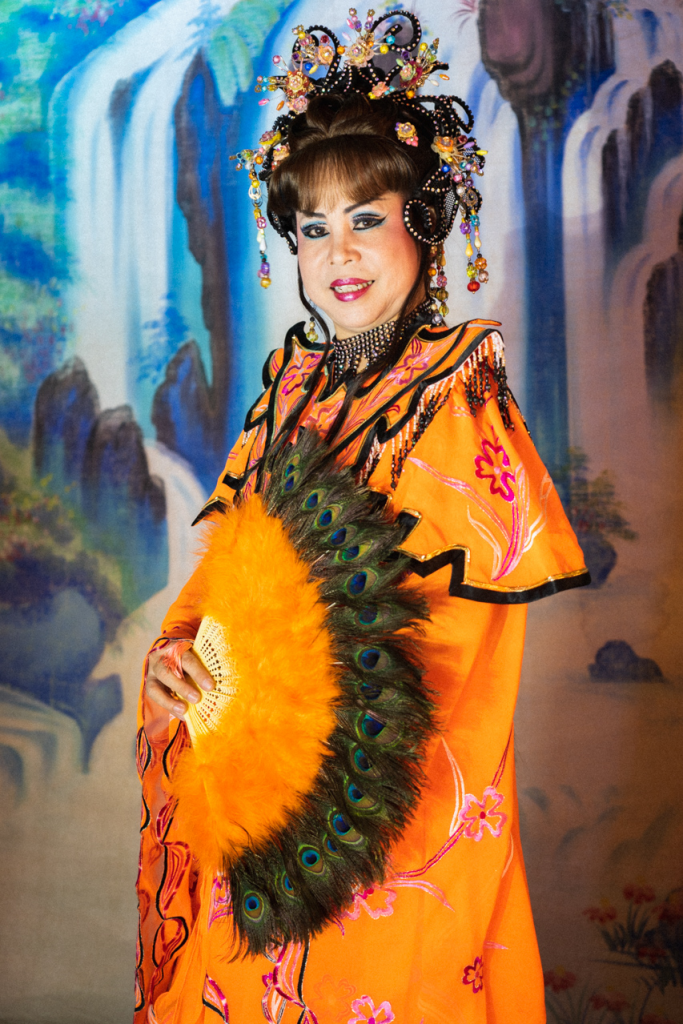
Check out their tribute video titled ‘The Day Before’, which features homegrown talents like Miss Lee, and the parallels between their own journeys and Singapore’s transformation as a nation.
This story was sponsored by Tiger Beer.

